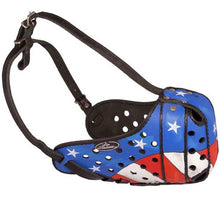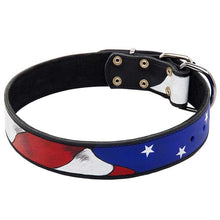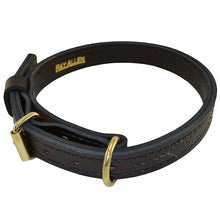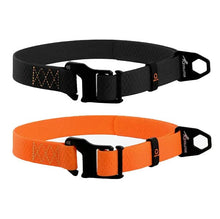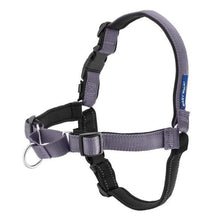Emergency Recall Training: Ensuring Your German Shepherd Comes When Called, No Matter What

The recall is the single most important thing that you can train your dog to do. It is the thing that will stop your dog from possibly hurting other animals or people or even save your dog's life. That said, most people's dogs have a very unreliable recall when off-leash and outdoors. So, how do we fix that issue? What's the difference between a recall and an emergency recall? Today, we will go over emergency recall training and how to ensure that your dog will come when called, no matter what.
There are two trains of thought on an emergency recall. One differentiates between a regular recall and an emergency recall. This is mostly trained by R+ trainers. R+ trainers do not use corrections in dog training at all. So, for anyone out there reading this who is adamantly against using corrections in dog training, let's go over how R+ trainers train for the emergency recall first.
R+ trainers train the recall the same way that everyone else does. They start with a leash, and treats, and reward their puppy or new dog with a high value treat for coming when called. But they do not proof their recall with corrections, so their dogs may come when called 99% of the time. But in a situation, such as when their dog sees a squirrel or another dog or something that could be considered a high-value distraction, their dog may get so excited that they refuse to listen. In that dog's mind, there are no consequences to not coming to their owner when called, except for missing out on a treat. Chasing a squirrel is much more fun to a dog with a decent prey drive than getting a treat or a piece of hot dog.

So, how do R+ trainers combat that issue? Well, they prefer to use a high-pitched whooping-like sound to catch the dog's attention. I've heard them use sounds such as "Oiiiiieeee". Kind of like they were calling for pigs in an Arkansas pig calling competition, or "koooookoooey" or whatever word that they choose to use. After saying this special, high-pitched word, when the dog runs to them out of curiosity, they don't just give the dog a treat. They give the dog a "jackpot." A "jackpot" may be something along the lines of having cooked steak chopped up in your treat bag, and you act super excited and give them the entire cut-up steak as a reward. So, it isn't just getting a treat. It's hitting the jackpot! This emergency recall word is used very sparingly. The key to this training is as effective as it relies on two things: using it sparingly and giving a reward jackpot that is beyond your dog's wildest imagination.
Now, do I believe that method of training works? Yes, I've seen it work. I've seen it work in situations where I would have told you it wouldn't have worked if I hadn't seen it for myself. Is this a method that I have used? No, it isn't. I don't believe that I should have to use a separate word to get my dog to come to me in an emergency. If I call my dog, I expect it to come to me every single time, no matter what. It doesn't matter if I don't have a treat. It doesn't matter if I don't have a leash. It doesn't matter that they see something that makes them excited. It doesn't matter if they're afraid for whatever reason, if the sky is falling, the rivers boiling, the ground is melting, etc. If my dog can hear me and I call my dog, I expect them to come running towards me immediately. So, let's get into how one would teach a solid recall without having a specialized emergency recall.

Remember, for the intent of this article, it is assumed that if you're here, your dog already has a recall. Your dog knows its name, your dog knows what come means, etc. So, we're not going to get into the two-ball game or other fun games that we use to teach puppies to recall. We're operating under the expectation that a dog understands the exercise already but may not always come when called, especially when there are powerful distractions around.
Adding distractions around a dog that already knows that it's supposed to come when called is known as "proofing." So, if you hear someone say proofing the recall, or proofing the down, or proofing the out, that's what they mean. Just because a dog knows a command and knows what they're supposed to do in response to that command; doesn't mean that they'll do what they know they're supposed to do if they don't want to. Dogs are not mindless robots. They want some things, they don't want other things, etc. If you call your dog, and your dog would rather chase a squirrel than get a treat, they are going to chase the squirrel. It does not matter that they know what they're supposed to do. They can choose to do what they want to do. Proofing the recall is showing the dog that they may want to ignore you to do something that they would rather do, but obeying commands is not optional.

So how would you proof a recall? You would begin by having your dog on a long line with a prong collar. You would add distractions that you know your dog enjoys. For instance, you may go to the park with your dog on a long line and prong collar and have a couple play catch with a tennis ball. If your dog tries to take off to grab the ball from them and fails to come when called, you would correct the dog so that the dog knows obeying is not an option. Then, when the dog does recall, you can give a reward.
Adding Corrections is a way to make the equation tilt in your favor. If a piece of steak on a 1 to 10 scale is an 8 to your dog, but chasing a squirrel is a nine; 8 is lower than 9 and the dog would rather chase the squirrel and not get the piece of steak. But under those same circumstances, if the dog knows for a fact that it will get a correction, plus miss out on the steak, it has a much higher incentive to obey the command and recall, no matter how much they would rather chase the squirrel were using as the bane of our existence.
You're breaking the confines of trying to trade high-value items in your control, for high-value items that are out of your control and are distractions. You're introducing the fact that not only does chasing the squirrel mean that you'll miss out on a treat, but ignoring commands also has negative repercussions. When a dog adds the negative repercussions to the equation, it's better to just ignore the squirrel, come when called, avoid a correction, and get a treat.

A whole medium rare ribeye steak may be the best thing in the world to one dog but to another dog chasing after that pesky squirrel is more valuable than that same medium rare ribeye. In a case like that, the R+ trainer is out of options. Their dog's recall will fail when it comes to their dog chasing squirrels, no matter what reward they have to offer, and there is nothing they can do about it except add corrections to the equation. But, at that point, they wouldn't be R+ trainers anymore.
That said, I thought I would bring both options up for this discussion. The R+ jackpot for a separate emergency recall command and the balanced dog training method of proofing commands. If you choose to do R+ for whatever reason in the world, power to you. I would be an R+ trainer if it worked 100% of the time. But it doesn't. It can't. That may not be important to some pet owners who prefer R+, and that's fine. But personally, I need my dogs to come when called, no matter what, hence the title of this article.
Thank you all, and please leave a like and share!
You might also like: Teaching a Place Command and Why It's Necessary




